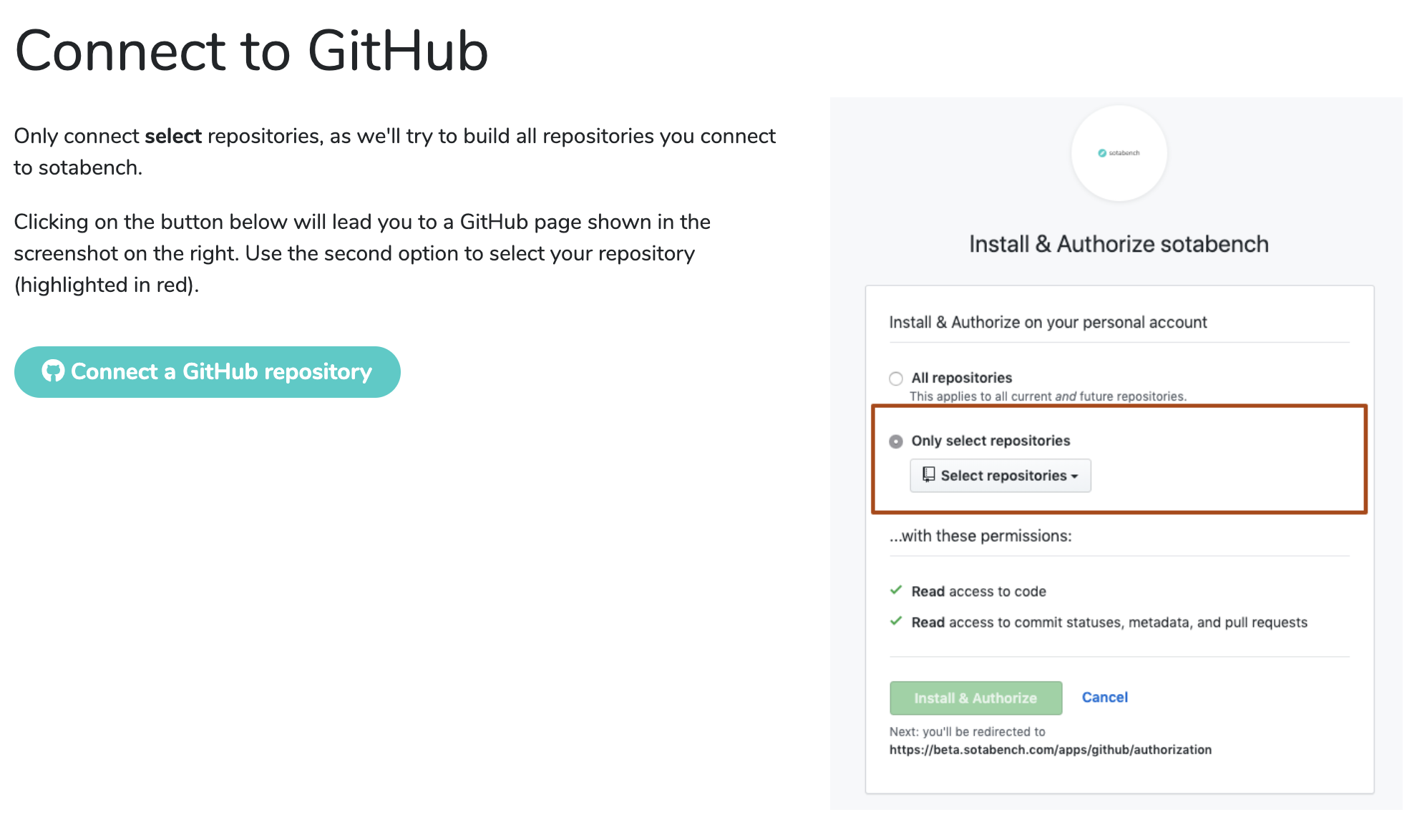Welcome to sotabencheval!

You have reached the docs for the sotabencheval library. This library contains a collection of deep learning benchmarks you can use to benchmark your models. It can be used in conjunction with the sotabench.com website to record results for models, so the community can compare model performance on different tasks, as well as a continuous integration style service for your repository to benchmark your models on each commit.
sotabencheval is a general benchmarking library, meaning it is designed to support all deep learning frameworks, and requires minimal code integration. There are alternative sotabench APIs you can use that are specialized for particular frameworks, e.g. torchbench for PyTorch.
Getting Started : Benchmarking on ImageNet
Step One : Create a sotabench.py file in the root of your repository
This can contain whatever logic you need to load and process the dataset, and to produce model predictions for it. To record your results for sotabench, initialise an ImageNet evaluator object to name the model (and optionally) link to a paper:
from sotabencheval.image_classification import ImageNetEvaluator evaluator = ImageNetEvaluator( model_name='ResNeXt-101-32x8d', paper_arxiv_id='1611.05431')
For each batch of predictions made by your model, pass a dictionary of keys as image IDs and values as
output predictions to the evaluator.add method:
evaluator.add(dict(zip(image_ids, batch_output)))
Then after you have accumulated all the predictions:
evaluator.save()
This will ensure results are evaluated and saved when they are run on the sotabench server.
Below you can see a working sotabench.py file added to the torchvision repository
to test one of its models, integrating the evaluation code from above:
import numpy as np import PIL import torch from torch.utils.data import DataLoader from torchvision.models.resnet import resnext101_32x8d import torchvision.transforms as transforms from torchvision.datasets import ImageNet from sotabencheval.image_classification import ImageNetEvaluator from sotabencheval.utils import is_server if is_server(): DATA_ROOT = './.data/vision/imagenet' else: # local settings DATA_ROOT = '/home/ubuntu/my_data/' model = resnext101_32x8d(pretrained=True) input_transform = transforms.Compose([ transforms.Resize(256, PIL.Image.BICUBIC), transforms.CenterCrop(224), transforms.ToTensor(), transforms.Normalize( mean=[0.485, 0.456, 0.406], std=[0.229, 0.224, 0.225]), ]) test_dataset = ImageNet( DATA_ROOT, split="val", transform=input_transform, target_transform=None, download=True, ) test_loader = DataLoader( test_dataset, batch_size=128, shuffle=False, num_workers=4, pin_memory=True, ) model = model.cuda() model.eval() evaluator = ImageNetEvaluator( model_name='ResNeXt-101-32x8d', paper_arxiv_id='1611.05431') def get_img_id(image_name): return image_name.split('/')[-1].replace('.JPEG', '') with torch.no_grad(): for i, (input, target) in enumerate(test_loader): input = input.to(device='cuda', non_blocking=True) target = target.to(device='cuda', non_blocking=True) output = model(input image_ids = [get_img_id(img[0]) for img in test_loader.dataset.imgs[i*test_loader.batch_size:(i+1)*test_loader.batch_size]] evaluator.add(dict(zip(image_ids, list(output.cpu().numpy())))) evaluator.save()
Step Two : Run locally to verify that it works
python sotabench.py
You can also run the logic in a Jupyter Notebook if that is your preferred workflow.
Step Three : Login and connect your repository to sotabench
Create an account on sotabench, then head to your user page. Click the Connect a GitHub repository button:

Then follow the steps to connect the repositories that you wish to benchmark:

After you connect your repository, the sotabench servers will re-evaluate your model on every commit, to ensure the model is working and results are up-to-date - including if you add additional models to the benchmark file.
Installation
The library requires Python 3.6+. You can install via pip:
pip install sotabencheval
Support
If you get stuck you can head to our Discourse forum where you ask questions on how to use the project. You can also find ideas for contributions, and work with others on exciting projects.